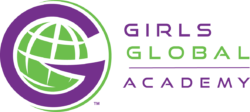
Girls Global Academy Public Charter School
Because You Matter: The premier training ground for high school girls in the areas of global citizenship, Business and Engineering in Washington, DC.

Because You Matter: The premier training ground for high school girls in the areas of global citizenship, Business and Engineering in Washington, DC.
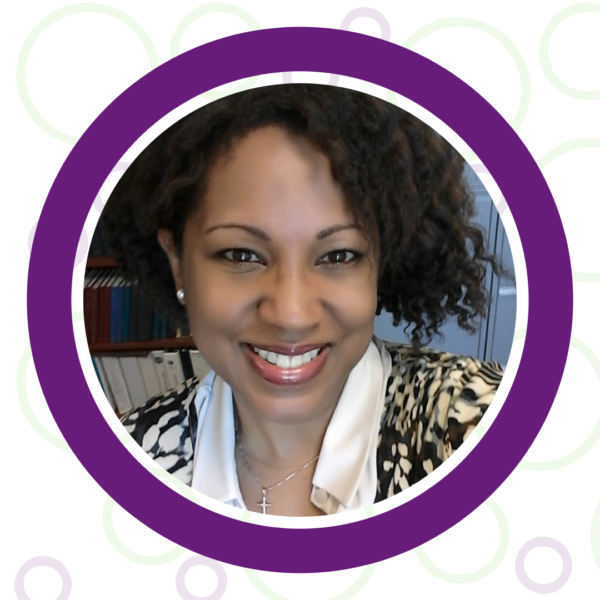
My name is Aungelic “GiGi” Nelson and I am currently an editor with the National Nuclear Security Administration. Before that, I was an Air Force historian for ten years. I also currently serve as an ANC commissioner for ANC2C03.
I took school seriously and went to college and got both a BA and an MA in American history. It wasn’t easy. I was born in Los Angeles, but my father was in the Army, so we moved a lot: California, Texas, Kentucky, Germany, and Georgia. So there were definitely gaps in my education. But what that experience did provide me with was a sense of independence and also adventure. I was never afraid to try new things. Getting the Air Force job meant packing up and moving by myself from Columbus, GA to St. Louis, MO. In my ten years with USAF, I lived in New Jersey, Philadelphia, Italy, and now DC. And this is home. I’m not going anywhere else!
What inspires and motivates me daily is the example we have from all those who came before us. They’ve given us a legacy that we absolutely have to live up to.
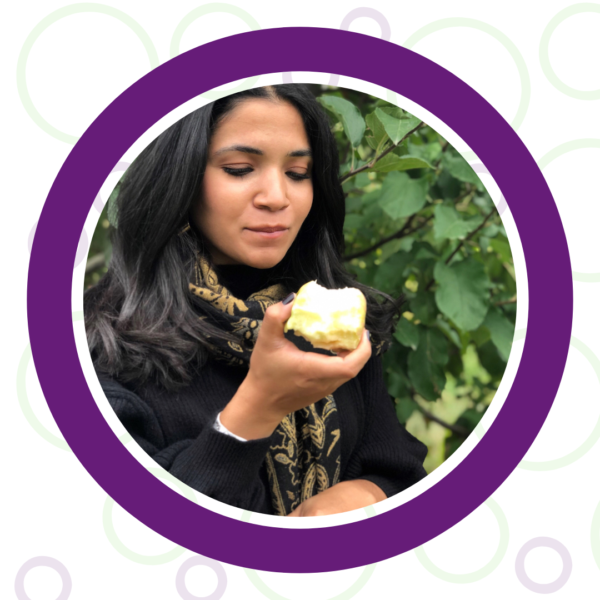
Sharon is currently a Research Associate at the Yale Program on Financial Stability, an organization dedicated to improving the world’s knowledge about how to fight financial crises. Sharon is part of a team creating a platform made up of case studies of specific economic interventions undertaken throughout history by policymakers to combat crises. The objective of the platform will be to equip policymakers around the world with insights and lessons learned from these crises so that they are better prepared to respond in the future.
Prior to her research at Yale, Sharon worked as a reporter at The Wall Street Journal, where she wrote about economics. At WSJ, Sharon learned how broader societal prosperity, equity, and our everyday lives are deeply connected to trends in business and finance. She wrote about the Southern U.S.'s increasingly divergent economic outcomes, which has led to pockets of intense poverty and crime. Various policy failures and business decisions throughout the last century are behind the trend.
Her work at WSJ helped her discover a broader interest in finance and economics and a drive to create equitable economic systems that allow all humans to live with security and dignity.
Outside of work, Sharon enjoys high-intensity interval training, reading biographies and arts and culture journalism, and getting to know the various hiking trails around New Haven, CT.
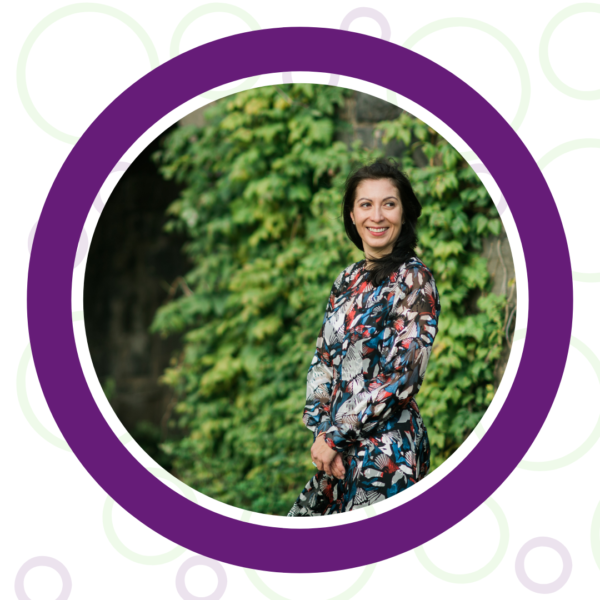
Donna Borak is a veteran business journalist, who has worked for the Associated Press, American Banker, The Wall Street Journal, CNN, and now Bloomberg Tax. She is also an Adjunct Faculty member at New York University’s Arthur L. Carter Journalism Institute. She earned a M.S. in Journalism from Boston University and has a dual B.A. degree in Cognitive Science and Philosophy from Lehigh University.
When she’s not writing and editing, she teaches and practices yoga and meditation. She also currently serves as the President of the Washington, DC chapter of WGIRLS Inc., a nonprofit directed at empowering women and children in underserved communities.
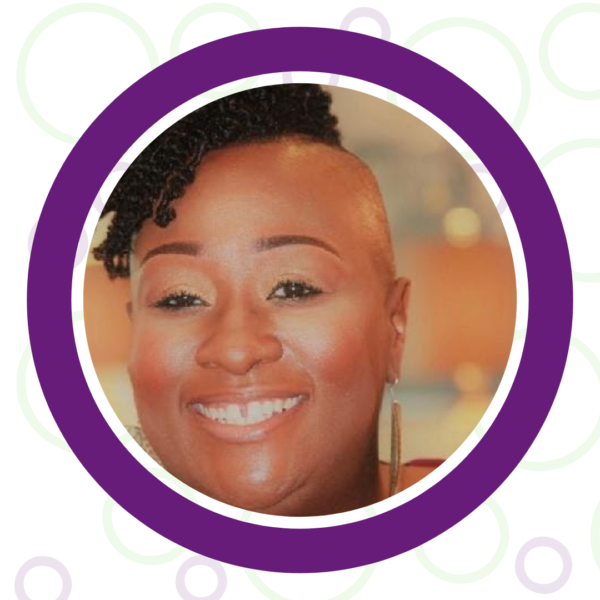
Ms. Shawn Smith is the Senior Physical Scientist for International Programs in the Office of Nuclear Material Safety and Safeguards at the U.S. Nuclear Regulatory Commission (NRC). Ms. Smith joined the NRC in 2002 as a Health Physicist in the former Office of State and Tribal Programs. Since that time, she has held progressively responsible positions within the NRC providing technical assistance to Federal, State, Tribal, and foreign governments on matters addressing nuclear regulation and radiological public health. She also completed a rotational assignment as an Executive Technical Assistant in the Office of the Executive Director for Operations. Ms. Smith is a graduate of the NRC’s Nuclear Safety Professional Development Program.
Before joining NRC, Ms. Smith worked as an Associate Engineer at the National Aeronautics and Space Administration. She has a Bachelor of Science degree in Physics from Alabama Agricultural and Mechanical University and has completed post-graduate studies in international public policy at Johns Hopkins University, School of Advanced International Studies.
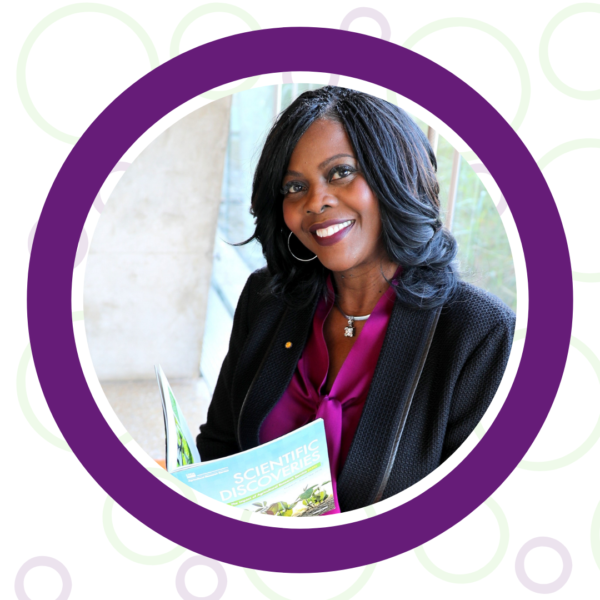
Dr. Chavonda Jacobs-Young is the Administrator of the ARS, USDA’s chief scientific in-house research agency, and is currently serving as the Acting Under Secretary for Research, Education, and Economics and the Acting Chief Scientist of USDA.
Prior to joining ARS, Dr. Jacobs-Young served in several scientific leadership roles including Director of the USDA Office of the Chief Scientist, Acting Director for the National Institute of Food and Agriculture (NIFA), and Senior Policy Analyst in the White House Office of Science and Technology Policy. In these roles she transformed USDA’s scientific coordination and made a lasting impact on the conduct, quality, integrity, and access to science for customers. In these roles she also elevated the visibility of agricultural research globally.
Dr. Jacobs-Young is a native of Augusta, Georgia. She holds M.S. and Ph.D. degrees in Wood and Paper Science and a B.S. degree in Pulp and Paper Science and Technology from North Carolina State University. She is also a graduate of American University's Key Executive Program. Dr. Jacobs-Young is a Fellow of the American Association for the Advancement of Science (AAAS), a Fellow of the National Academy of Public Administration, an If/Then Ambassador for the AAAS, and a 2016 recipient of the Presidential Rank Award.
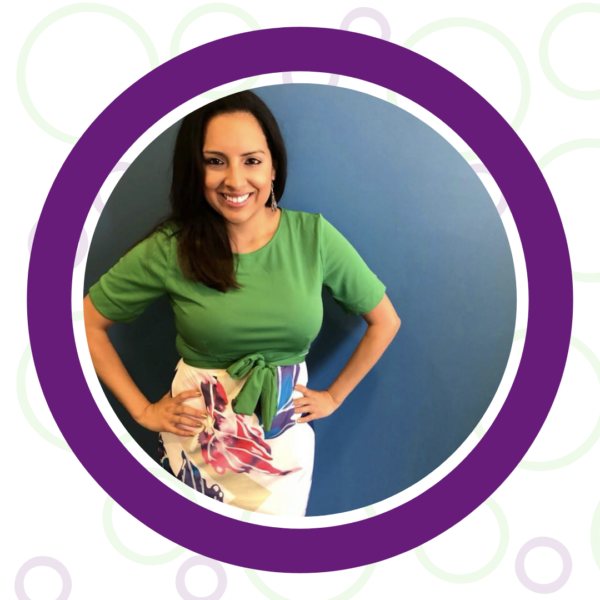
When you think of Elsie Guerrero, you think of a superwoman because she does it all!
Elsie Guerrero is a publisher, and author of Elsie Publishing Company and the founder and organizer of Advancing Latinas into Leadership Mentoring Program. She is also a profound leader with a desire to make a difference in her community.
Elsie Guerrero is the founder and organizer of Advancing Latinas into Leadership Mentoring Program (ALLMP), a non-profit that helps high school Latinas prepare for their lives after high school professionally and academically through mentorship, college preparedness, and professional development. Through ALLMP, she has mentored young Latinas in different high schools and awarded five high school students a book scholarship for their first semester of college. Elsie also established an ALLMP network platform for professional Latinas on LinkedIn and Facebook to connect women with common interests and help empower each other and the next generation of Latinas.
Elsie is also a publisher and children's book author of Elsie Publishing Company, LLC. She writes children’s books on social issues, such as children with disabilities and the Latino community to bring awareness about the topic and promote inclusion. In four years, she published twelve books and plans to publish more soon to eliminate discrimination, bullying, and any misconception society may have about children who have a disability and/or the Latino community. The majority of the books were inspired by real children and real-life situations. She partnered with Assembly member Cristina Garcia to publish Bringing Back History: The Untold Story about the Mexican Repartition, a story based on AB 146 and the students of Bell Gardens Elementary School.
She hosted two book tours and has read to children all over the United States. Places like California, Texas, Kentucky, Maryland, and Washington, D.C. As much profits as possible from the profits of the books, Elsie gives scholarships for Latinos and disabled youth. One hundred percent of the profits from her children’s book, Puerto Rico: Its own Land, goes towards building playgrounds in Puerto Rico. She has been featured on Telemundo, NBC Latino, and Newsweek Mexico. Elsie was also featured in the international movement, Today’s Inspired Latina. Her best-selling book is How Emily and Eli Became Friends, a story about autism. Elsie has donated books to detained children on the Mexican border and children in Jamaica. She was recently featured as a 2020 Latina Influence of the Year with the Hispanic Lifestyle Magazine.
Elsie also does advocacy efforts in helping undocumented families learn about their rights under the federal law, the Individuals with Disabilities Education Act (IDEA). She helps families learn about the rights they have as a parent with a child who has a disability. Her goal is to ensure that their children are getting the free and appropriate education and/or related services that they are entitled to under IDEA.
She recently obtained her Juris Doctorate from the University of the District of Columbia School of Law. While in law school, she served as president of two organizations: Law Students for Disability Rights (LSDR) and Latinx Law Student Association (LLSA). Elsie also was a student attorney in the Immigration Clinic where she focused on children’s asylum law. Her achievement was well received at her law school, which awarded her the Rising Student Leadership Award.
Along with her Juris Doctor, Elsie also earned her bachelor’s degree in Government (Political Science) with minors in Philosophy and Sociology from Sacramento State University, Master of Public Administration with a concentration in Judicial Affairs from Golden State University and a Master of Public Affairs and Practical Politics from the University of San Francisco.
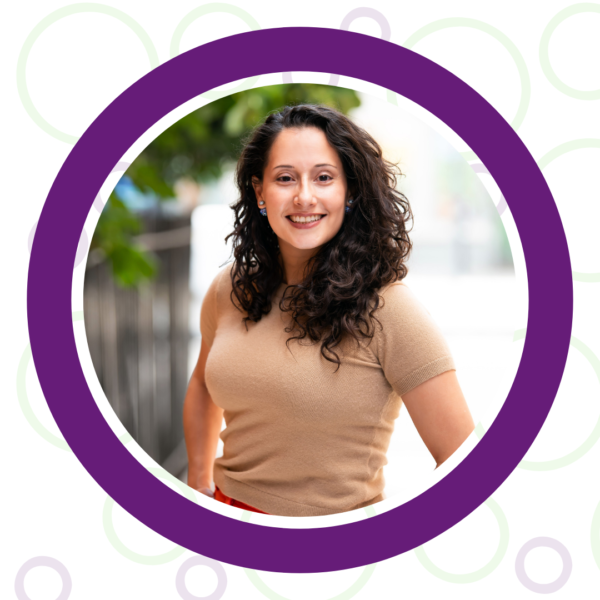
Catalina Talero serves as the Foundation Director of Tikkun Olam Women’s Foundation. Prior to this, she served as the Director of Individual Giving at the Fund for Global Human Rights, an international team that is informed by feminist principles in every aspect of its work. She has owned her own company, Envaluate, since 2011. She has worked as a programmatic and strategic development consultant for organizations such as: Search for Common Ground, International Center for Alcohol Policy, and George Washington University. Her experience in senior-level nonprofit service had previously been gained at organizations such as Global Kids, One World Youth Project, and Asian American LEAD. Born to Colombian parents shortly after they arrived in the U.S., Catalina is fluent in Spanish, conversant in French, and her substantive expertise is in civic education. Prior to specializing in philanthropy, Catalina was a program officer for the U.S. Department of Education. She received an honors bachelor’s degree in political science from the University of Toronto and a master’s degree in human and organizational development from George Washington University. During her time at GW, she received a Fulbright fellowship for research focusing on civic engagement and peace education among youth in Colombia while affiliated with Universidad de Los Andes in Bogotá.
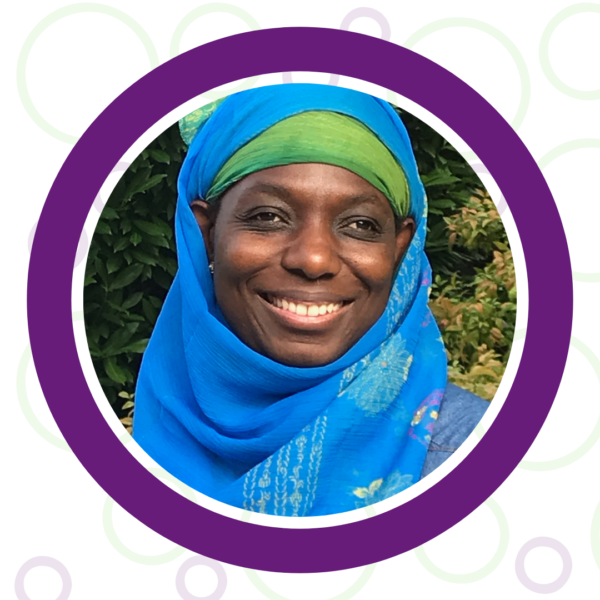
Zainab Abbas is the founder and Chief Executive Officer (CEO) of SciTecch2U Inc. She is a mother of six, Black Muslim American female. She received her B.S from Knoxville College an HBCU in Knoxville, TN and her M.S in Developmental Biology at the University of Cincinnati. Her work with Proctor and Gamble Pharmaceuticals, Walter Reid Army of Institute of Research, IGEN, BioVeris and Panbio Diagnostics and Fortis College gives her diverse knowledge in STEM disciplines. She was an active member of "Women in Bio Youth Committee" for three years. When she is not homeschooling six children, she is busy a busy soccer mom and working to help her community. She enjoys reading, traveling, and cross-fit.
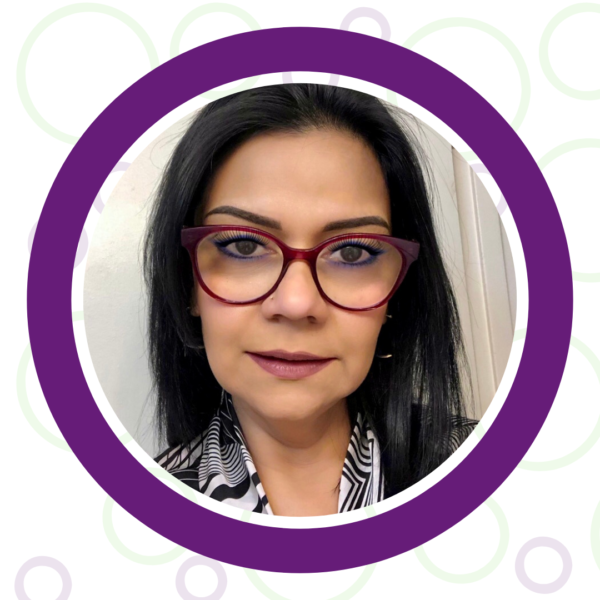
Jacqui Ames was recently appointed as the Director of Treasury Management at EagleBank, a $10Bil local community bank in the Metro DC area.
Jacqui has over 35 years of banking experience with an educational background in business management, accounting, and finance. Over the last 35 years, Jacqui has worked in various capacities within the banking industry to include branch management, premier banking, investments, insurance, international banking - foreign governments/institutional banking, and portfolio relationship management. One of Jacqui’s achievements was winning The Group Global Award For Top Sales Achievement.
Jacqui is also celebrating her 15th year work anniversary at EagleBank and is proud to be part of a successful bank that thrives to deliver its core values - Relationships FIRST.
Jacqui’s motto is Leadership By Example and believes that a true leader is one who is willing to lead by action.
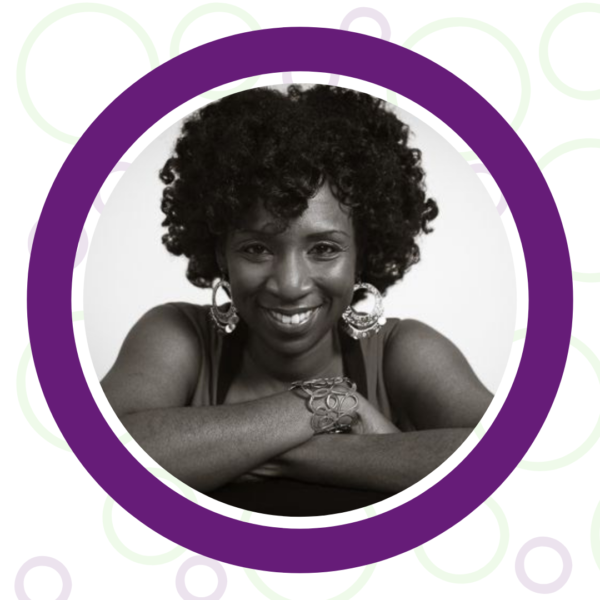
Demetra Moore is a small business coach with a passion for helping others reach their highest potential. This is a love she discovered over a decade ago while working as a mutual fund trader for a Fortune 500 company. In 2007, Demetra made the decision to pursue her longtime dream of entrepreneurship by starting her firm Moore Out of Life, Inc.
This Certified Professional Coach (CPC) sharpened her personal and professional development skills at the International Coaching Federation (ICF). Today, she is empowering students and entrepreneurs to create the life of their dreams. Demetra is also helping hairstylists, barbers, make-up artists and other cosmetology professionals take the beauty industry to the next level through her platform, Seeing Beyond the Chair.
In addition to coaching, Demetra has also shared her knowledge with others as a columnist for Huffington Post and Huami Magazine. She has also been featured in Black Enterprise, HYPE HAIR, Wealth Place, and Connected Woman Magazine.
Demetra currently resides in Charlotte, NC. When she’s not working, Demetra loves spending time with friends and family, reading, traveling, and experiencing what the world has to offer.
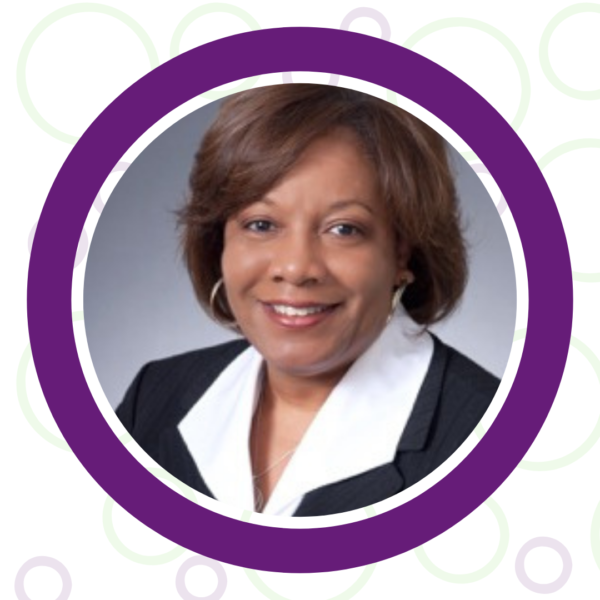
Sonja Sanders Wells is the Executive Vice President and Chief Lending Officer for City First Bank and has over three decades of experience in commercial lending with a track record of achieving exceptional results. She oversees the bank’s $200 Million loan portfolio and is an expert in customizing commercial credit facilities specific to client needs and industry segments, inclusive of leverage and leverage source loans in NMTC transactions.
Sonja is a member of the Executive Management team and is responsible for the strategic direction of the Commercial Banking Group. She is the bank’s brand ambassador and maintains relationships with industry influencers and key community and strategic partners to expand and enhance City First Bank’s reputation in the marketplace.
City First is a Community Development Financial Institution (CDFI) that was founded in Washington, DC twenty-five years ago to serve low to moderate income communities in Washington, DC, Maryland, Virginia, Delaware and Pennsylvania, in direct response to the systemic disinvestment in our most vulnerable communities. To date, City First has deployed over $1.3 billion in mission critical capital to Affordable Housing Developers and Investors, Nonprofits, Charter Schools, Community Facilities and Small Businesses. City First works alongside a community of local leaders, a dedicated network of a CDFIs, B-Corps, and a Global Alliance of Banks whose values are aligned with sustainable frontline solutions to support the financial health, well-being and equitable prosperity of our communities. www.cityfirstbank.com | www.cfenterprises.org
Prior to joining City First Bank; Sonja was a Vice President and Senior Relationship Manager at M&T and a Business Banker for First Union Bank/Wachovia now known as Wells Fargo.
Prior to her Commercial Banking and Real Estate career, Sonja was a Shopping Center Leasing Executive for the Taubman Company in Bloomfield Hills, Michigan, a Marketing Executive for the Rouse Company in Columbia, Maryland and a Retail Buyer and Executive for several high-end retail specialty stores along the East Coast.
Sonja is a member of the African American Real Estate Professionals, the Southeast Community Development Corporation and Wildflower Public Charter School’s Board of Directors, and the Maryland Casino Business Investment Fund’s (MCBIF) Loan Committee. Sonja is active in several professional and community organizations throughout DC, Maryland and Virginia.
Sonja is the Immediate Past Chair of the Board of Directors for the Baltimore City Community College Foundation and was formerly the Vice President of the Butcher’s Hill Neighborhood Association’s Executive Board, member of the loan committee for Maryland's Department of Housing and Community Development's Neighborhood Business Works program, the United Way of Central Maryland’s Marketing Committee, Howard County Hospital’s Marketing Committee, the Columbia Association’s Marketing Committee and numerous other philanthropic and community organizations.
Sonja is a graduate of Boise State University with extensive certifications, training and experience in Commercial Banking and Real Estate, Marketing, Retail Management and Buying.
Sonja and her husband of 25 years reside in the District of Columbia. Her husband, Ernest N. Wells, Jr. is Department Head and Systems Engineer/ Electronic Engineer for the U. S. Department of the Navy in Washington, DC.
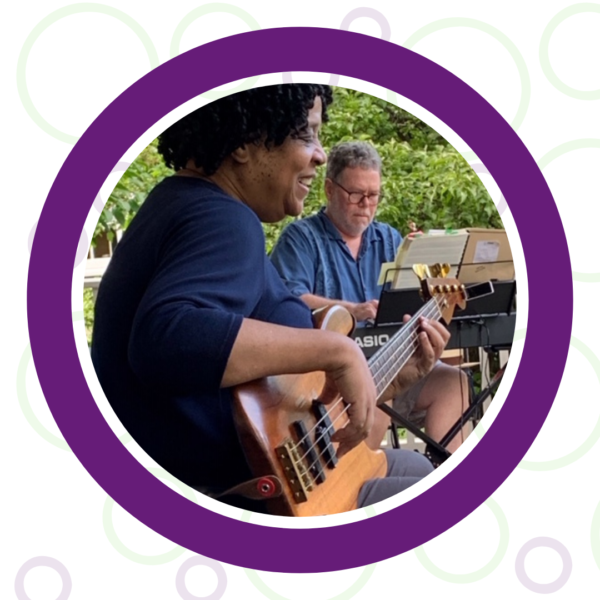
Professor Sonia R. Jarvis is an accomplished attorney and scholar whose research and teaching have focused on race, politics, and the media. As a practicing attorney, her practice focuses on civil rights, civil liberties, and counseling nonprofit organizations and minority businesses. She served as a law clerk for renowned Federal Judge Frank M. Johnson, Jr. when he was the US District Court Judge for the Middle District of Alabama and then promoted as a US Circuit Court Judge for the 11th Circuit Court of Appeals. Professor Jarvis has written several book chapters and papers and is currently co-authoring a book entitled "States of Confusion: How New Voter ID Requirements Fail Democracy and What to Do About It" (under contract with NYU Press). An active member of several professional associations and academic organizations, she has served in a variety of administrative positions, including most notably as the Executive Director of the National Coalition on Black Voter Participation, Inc., and Managing Director of the Center for National Policy Review Clinic formerly based at Catholic University Law School.
A frequent commentator on public issues, she has testified before Congress and has been interviewed by almost every major media outlet in the country, such as National Public Radio, the Washington Post, PBS News Hour, and CNN. Professor Jarvis has taught undergraduate and graduate courses on race and politics, intergroup dialogue, media analysis, law and public policy, women's rights, and public policy while bringing a wealth of practical and theoretical knowledge to the courses she teaches at Baruch. She first joined the Baruch Faculty in 2004 as the Lillian & Nathan Ackerman Visiting Distinguished Associate Professor of Equality and Justice in America and was appointed as a Distinguished Lecturer in 2007. She graduated with a B.A. in Political Science with Honors and Distinction, and a B.A. in Psychology both from Stanford University, and a J.D. from Yale University Law School.
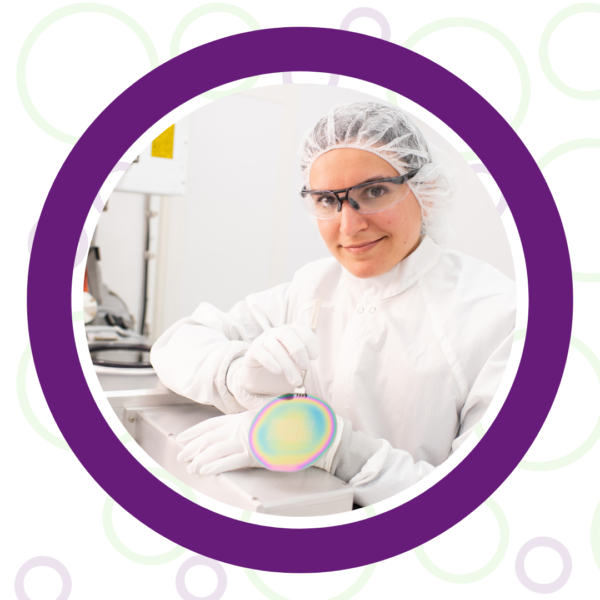
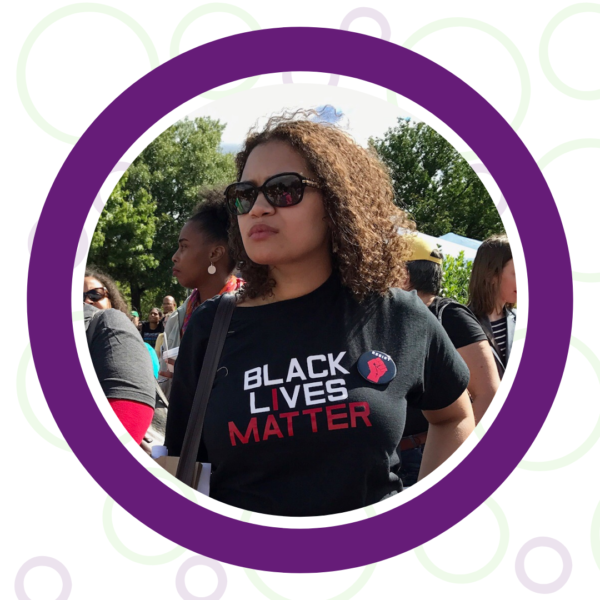
Rebecca is an attorney at the Youth Advocacy Coordinator at Rights4Girls, where she focuses on the intersection of female sexual abuse, sex trafficking, and juvenile justice system involvement in Washington, DC. In addition to policy reform, she leads Rights4Girls’ youth advocacy workshops where she engages and empowers young people in the District to become powerful agents for change. Rebecca has extensive experience working with survivors of violence and trauma and serves as faculty for the National Council of Juvenile and Family Court Judges’ (NCJFCJ) judicial institute, where she helps train judges on domestic child sex trafficking. She also co-edited I am the Voice: Girls’ Reflections from Inside the Juvenile Justice System.
Prior to her work at Rights4Girls, Rebecca served as a sexual assault counselor and first responder for the Listening Ear Crisis Intervention Center in Lansing, Michigan where she worked with nurses, prosecutors, and police officers to coordinate care and advocacy for sexual abuse survivors. She has also worked directly with youth involved in the DC foster care system as a Court Appointed Special Advocate (CASA) and has mentored delinquent youth during incarceration in local detention facilities.
In addition to crisis intervention and legal advocacy, Rebecca has supported youth through traditional teaching and mentorship. As a teacher in the Peace Corps, she created female empowerment workshops for her students in Tanzania. She also has experience working with homeless and refugee youth and is passionate about the intersection of race, class, gender, and violence.
Rebecca holds a B.A. in Political Science and Ethnic Studies from Brown University, and a J.D. from Georgetown Law where she was a Public Interest Fellow. Rebecca is a former Equal Justice Works fellow and a current fellow in the National Juvenile Justice Network’s Youth Justice Leadership Institute. She is a member of the District of Columbia Bar.
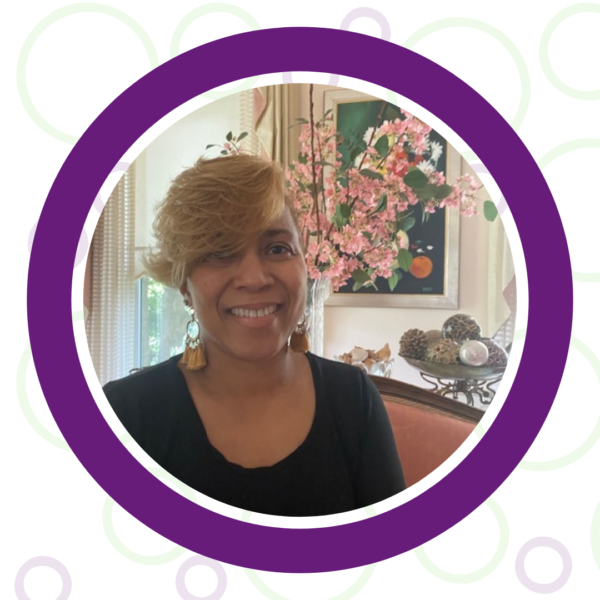
I am a licensed clinical psychologist who works in private practice in the Washington DC Area. I am certified in the following areas: Infant Mental Health, Maternal Mental Health, Integrative Medicine for Mental Health, Conflict Resolution and Mediation, as well as assessments. Also, I have been entered as an expert in both DC Superior Court and Montgomery County, MD Circuit Court. On a more personal side, I am a proud mother of 2, trying my best to navigate COVID and homeschooling.
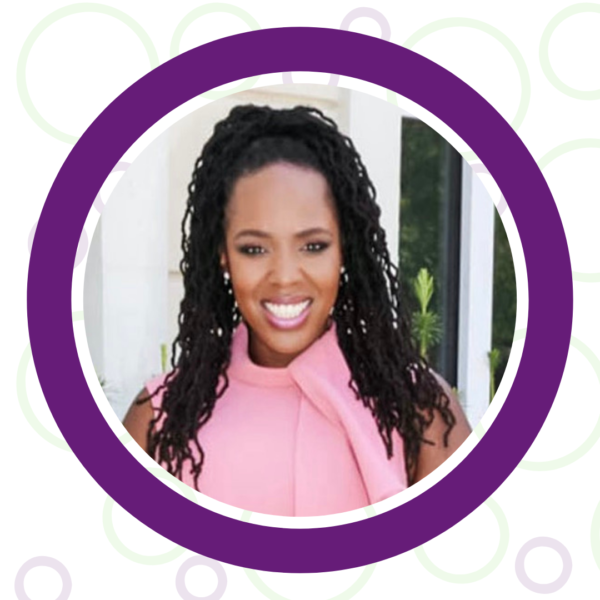
Dr. Efua Obeng is an associate professor and chair of the department of marketing at Howard University. She received her undergraduate degree from UNC Chapel Hill (Go Heels), master's degree from Duke University, and PhD from the University of Pittsburgh. She is a proud member of Zeta Phi Beta Sorority, Incorporated and hopes to inspire you as the future leaders of this world.
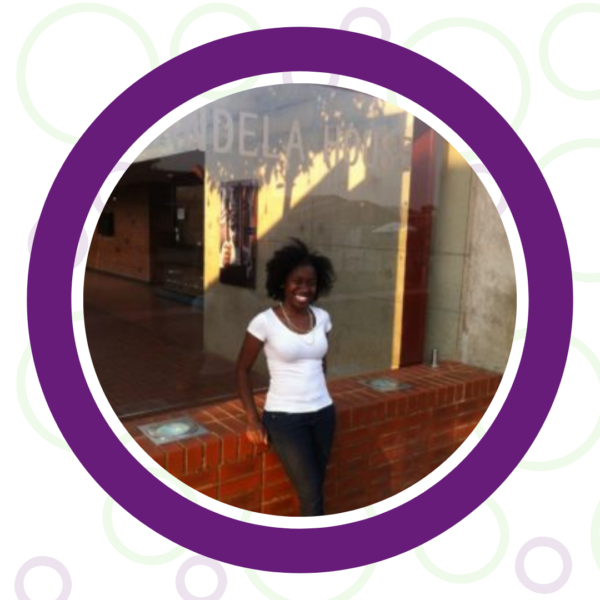
Erica Doe is a Washington, DC native committed to the use of therapeutic creativity in the social-emotional development of youth. She is the daughter of immigrant parents from Liberia, and the first in her family to graduate from college. As such, she is especially inclined to work with students of color who will be the first in their families to attend a college or university. After earning her Bachelor of Arts from Columbia University, and her Master of Social Work from Syracuse University, Erica received a Fulbright Fellowship through which she served as a University Teacher and College Advisor in Johannesburg, South Africa. She currently serves at the YWCA NCA’s Youth Programs Manager, overseeing all program activities, including curriculum development and measurement of outcomes. Erica is a licensed graduate social worker, and has ten years of education and youth services experience.
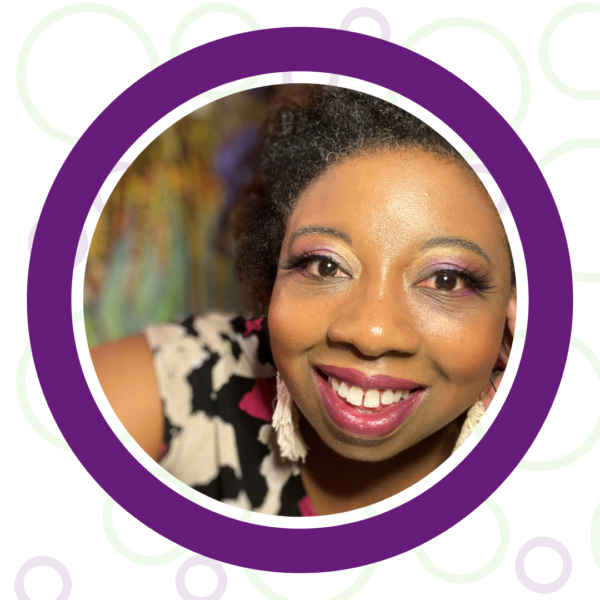
JoyAnn Courtney obtained her BS degree in biology from Spelman College and her Ph.D. in molecular and cellular biology at Baylor College of Medicine. She uses her multidisciplinary experiences and training to engage in activities that assist in reducing cancer and health disparities. She’s also passionate about improving lives and brings her outgoing personality and creativity to the party (aka work, project, activity, event, etc.). JoyAnn is a sister, a daughter, an auntie, a 9-5’er, an entrepreneur, a mother of 2 daughters, a wife, a church goer, enjoys cooking, creating connections, being resourceful, an idea generating machine. JoyAnn is committed to research, education, and service in her professional and personal life.
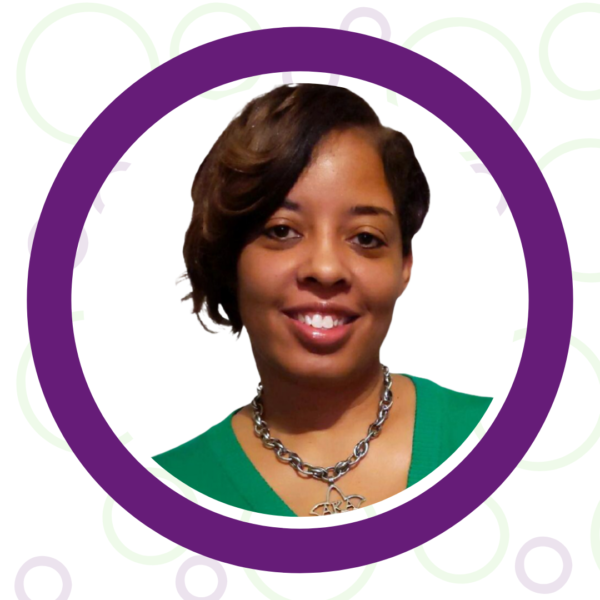
YaVonne Boyd is the founding CEO of the Community Wellness Alliance (CWA). Throughout the District of Columbia, CWA has partnered with community and governmental Agencies around health solutions for local residents. The mission of CWA is to the bring health and wellness awareness through education, outreach and advocacy utilizing partnerships and collaboration to improve health outcomes of residents of the District of Columbia, Maryland and Virginia.
Mrs. Boyd has over 20 years of public health and community-based experience. She has extensive experience through her professional career and volunteer work in addressing health disparities. Her deep passion is being vested in the community as a native Washingtonian who is focused on improving the health and environmental awareness for under resourced residents.
Prior to launching the CWA Mrs. Boyd served as the DC Cancer Consortium’s (DCCC) Executive Director. In that role, she oversaw and provided direction to staff that represents the interests of the Consortium and its members with DC Council, the Mayor’s office, Department of Health, managed care organizations, and key non-governmental stakeholders. During her tenure with DCCC she implemented an internship program to support local organizations and a training program to help with the infrastructure of small organizations. Before joining the DCCC, Mrs. Boyd worked at the DC Department of Health for over 9 years where she worked in tobacco control and access to care. Through her volunteer and professional work Mrs. Boyd has contributed to enhancing the quality of life.
Mrs. Boyd holds a BA in sociology, a master’s degree in organizational leadership and is currently matriculating through her doctoral dissertation in the field of organizational leadership.
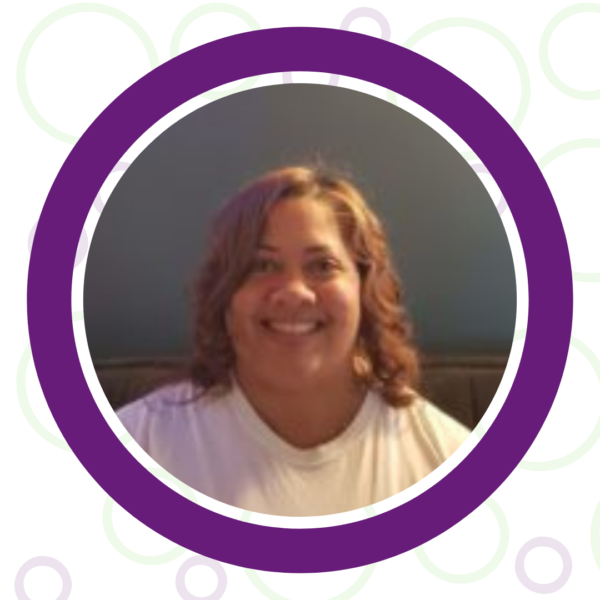
My name is Shannon Jones – I’m proud to have been born and raised in Northwest DC and also proud to have attended and graduated from all D.C. schools from elementary through college including Howard University for undergrad and American University grad education. Personally, I’m a wife in a blended family with two sons, one stepson, and one stepdaughter, two dogs, and a cat; and the baby sister to your GGA principal, Shayne, and aunt to her daughter.
Professionally, I have the awesome opportunity to lead the equity, inclusion, diversity, and wellness program for the over 8,000 Kaiser Permanente staff in the DMV. Kaiser Permanente is one of the nation's largest not-for-profit health plans, serving 12.4 million members in the US. In the DMV, we serve over 768,000 members through 34 medical offices. I’m charged with helping ensure that equity and justice is embedded into everything we do – from how we hire and develop our workforce, to the members we care for and in the communities we serve. Additionally, I work to support our staff in aspiring to be the healthiest workforce in healthcare. I’ve been with the organization for over 20 years and have been mentored and sponsored by many to get to where I am today.
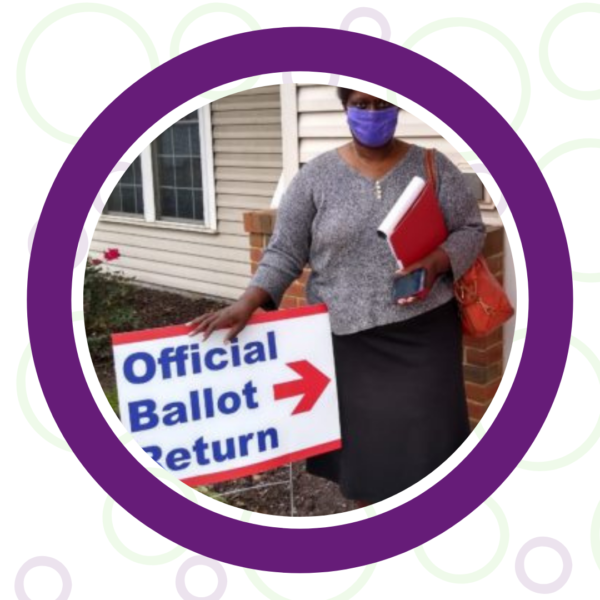
Kim Lawson-Jenkins has worked for more than 40 years in computer science. She has designed, developed, and fielded software for Motorola cellular telephone systems in Europe and Asia. At the Naval Research Laboratory in Washington DC she designed and developed secure communication devices for the U.S. Navy. Currently she is a cybersecurity specialist at the U.S. Nuclear Regulatory Commission. Kim has a bachelor degree in Computer Science from the University of Illinois, a master's degree in Computer and Telecommunications from the George Washington University, and an Applied Scientist degree in Computer Science from the George Washington University. She is married and has one son.
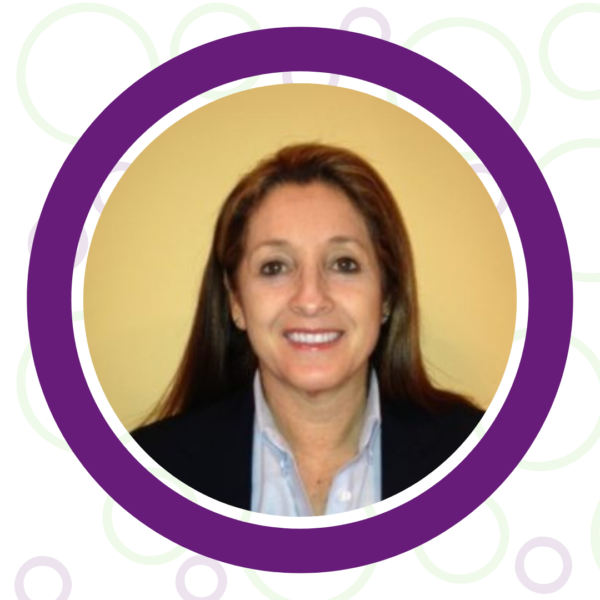
I spent over twenty years in the U.S. Government including work at the White House Office of Science and Technology Policy. My career focused on building international partnerships between government agencies and organizations in science, technology, and innovation. Two highlights of my career were working at NASA, where I was able to observe space launches, and working for six years in the Obama Administration. Additionally, as the spouse of a Naval Officer, I moved around frequently and was able to live in Japan, Italy and many parts of the US. This made building a career challenging but I embraced the concept that the road to success for me was not a straight road but would include many off ramps. I hold a Bachelor of Science in Political Science and French from the State University of New York and a Masters Degree in Government/Foreign Affairs from Georgetown University.
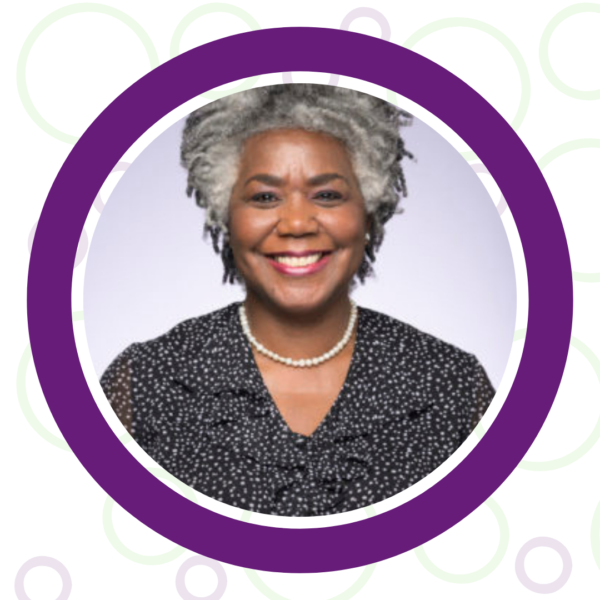
Annelle Primm, M.D., MPH is the Senior Medical Director of the Steve Fund, an organization focused on the mental health of young people of color including college students in the transition from adolescence to early adulthood. She is also co-founder, chair, and convener of the All Healers Mental Health Alliance which mobilizes organizational collaboration to provide healing services for disaster-affected marginalized communities. Dr. Primm previously served as Deputy Medical Director of the American Psychiatric Association (APA) and Director of the Johns Hopkins Community Psychiatry Program. She received her undergraduate degree from Harvard University, her medical degree from Howard University and psychiatric training as well as training in public health from Johns Hopkins University. Dr. Primm is a published author and the recipient of numerous awards and honors including Distinguished Life Fellow of the APA. She is currently an adjunct Associate Professor of Psychiatry at Johns Hopkins University, New York University, and Howard University Schools of Medicine. Dr. Primm is a member of the Black Psychiatrists of America Council of Elders.
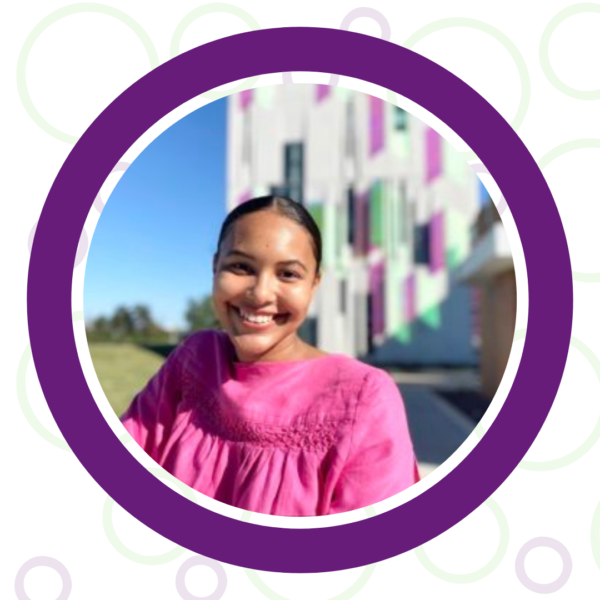
Erin Stewartson graduated from the A. James Clark School of Engineering with a bachelor’s degree in Civil Engineering in Spring 2020. She was a Banneker Key Scholar and a National Science Foundation Louis Stokes Alliance for Minority Participation Undergraduate Research Fellow who researched compost implementation in highway slopes. Erin had two previous internships with Turner Construction Company working as a field and project engineering on the Ronald Reagan National Airport and the Conrad City Center Hotel. She was awarded the Robert L. Morris Award in Environmental Leadership (May 2020), the American Concrete Institute Excellence Scholarship (May 2020) and the National Science Foundation GEM Ph.D. Fellowship (June 2020). Erin is currently at The Ohio State University pursuing her doctoral degree in Civil Engineering and Material Science researching methods for more sustainable waste material integration into the construction industry. At OSU she is a member of the Society of Black Graduate Engineers, the Black Graduate Student Professional Caucus, and the American Concrete Institute OSU chapter. She enjoys singing soprano in multiple gospel choirs, traveling to new places, and spending time with her family
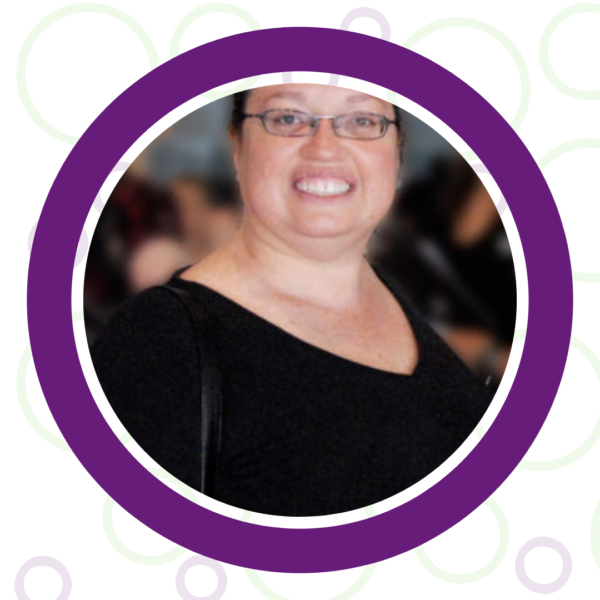
I am an Innovation Strategist and Design Researcher who strongly believes in the power of solid research and visual storytelling techniques. I have helped companies from the Chicago Tribune and the LA Times, AT&T, to McDonald’s and now at Facebook shape the future landscape by taking the research from just abstract numbers to involving company stakeholders in the world of their customers and hear their voices. I am currently an Experience Researcher and Strategist at Facebook working on projects and topics at the 40,000 foot level. I live to understand people and to design beautiful and useful experiences, services and products for them. I have a thorough understanding of the value visual storytelling has to build a brand within a business and consumer context. I am also an educational product developer that have created over 400 products for the top 3 educational publishers and have authored my own award-winning series of children’s books for the pre-kindergarten dual language market.
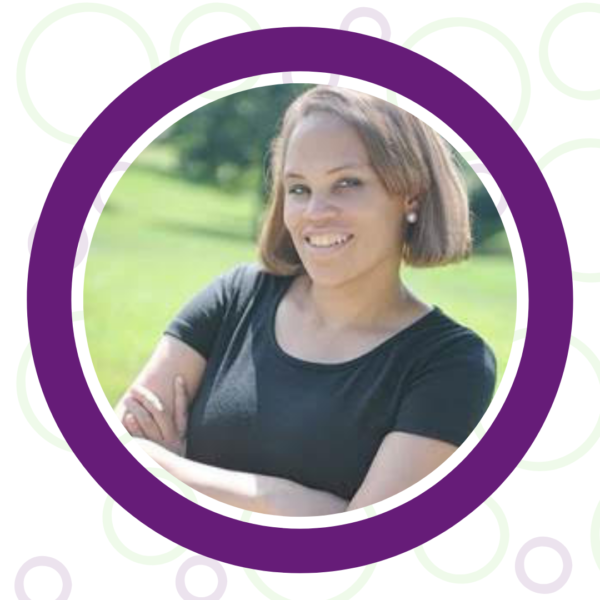
Jamecia Muckelvene-Jackson is an Executive Officer at one of this nation’s leading federal agencies, she has spearhead and ignited a non-profit to raise cancer awareness , she is a writer and an author of a children’s books, and she is a wife, mother, daughter and sister of a family that is inspired by her many accomplishments.
Jamecia is a self-styled freelance writer. She draws inspiration from her experiences as an African American Family woman. Jamecia's early years were spent traveling extensively due to her father's postings in Asia, Europe, and across the U.S., experiences that provided her a unique worldview and continue to inspire her creative pursuits today. Outside of her federal service position and written word, Jamecia's passion for shedding light on African-American challenges and seeking out ways to inspire and motivate them through her writings and non-profit efforts.
Her first published work, The Very Awesome Adventures of RuRu & Rudy, was written in collaboration with her sisters and dedicated to their father's memory and written to bring representation of young black girls to life during the holidays. When away from the writing table, she finds herself at the centre of her family - with her husband and two children named, naturally, for her parents Pearline & James.
Jamecia’s favorite quote comes from her visits to a museum in New York where her son’s image was featured and created by Tawny Chatmon in her Inheritance series. The quote is from an unknown source and it reads, Our Children inherit what we do not resolve.
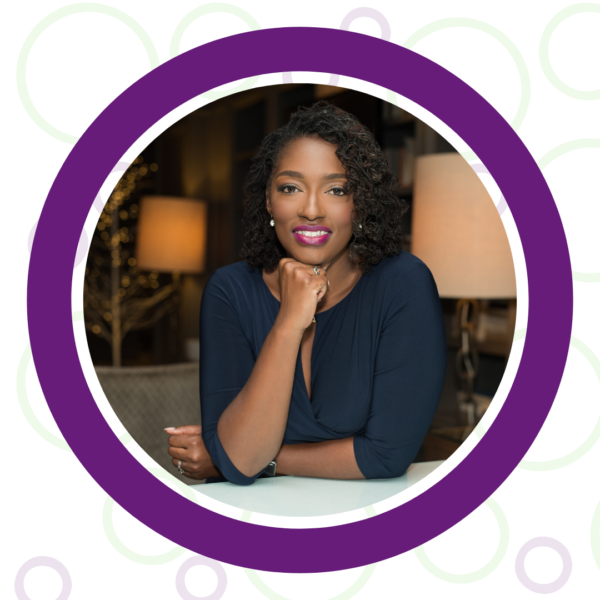
Christine leads with love, speaks truth with sincerity and inspires others to bring their truest whole selves to the table. She serves as an Executive Leadership Coach, Public Relations Strategist and U.S. Air Force Reserve Officer.
She is now the Founder of Authentic Ascent, LLC, an Executive Leadership Coaching & Consulting business. She specializes in helping professionals lead with authenticity to transform into their best selves both personally and professionally. Together, she and her clients deepen conversations and shape organizational culture. Her vast experience makes her the ideal thought partner to help leaders create meaning in their own lives and in their organizations, resulting in motivated employees, customer commitment and increased productivity.
In her Air Force role, she helps national and international leaders create communication strategies to address topics such as: diversity, talent acquisition/retention, diplomacy, misconduct, marketing and policy. She is a Bronze Star recipient who has led international consultation, worked with the Secretary and Chief of Staff of the Air Force, governors, African & European Ambassadors, CEOs of space industries, movie directors, national media outlets and sports organizations. She continues to manage, develop and lead the Department of Defenses’ # 1 Media Training program for defense senior leaders.
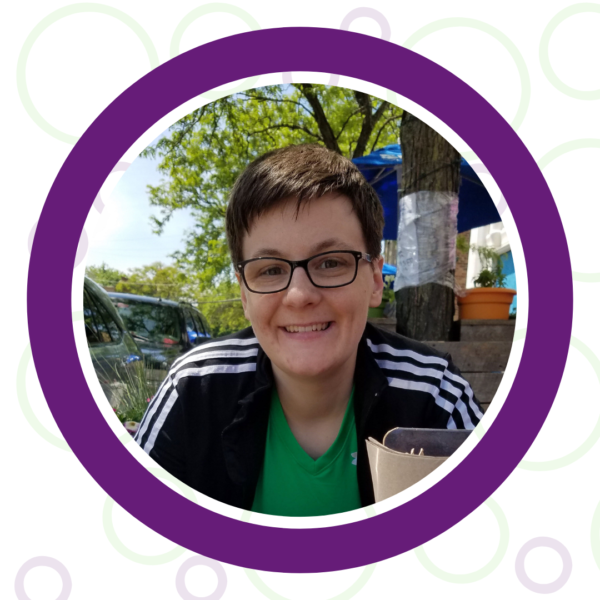
I work as an integrated producer for EF Education First, an educational travel company. My role includes a mix of project management, operations, process improvement, vendor relations, and a hint of finance, all in the service of helping my team create marketing materials that showcase how important it is for students to see the world. My journey to get here has been a series of accidents and maybe a little bit of fate. As a young adult, I always dreamed of being a teacher and, after six years in education, including four as an eighth grade Social Studies teacher, I found that my heart wasn’t in it anymore. I loved my students and owed it to them to step aside and find a new path in life, even if I didn’t know what that meant at the time. I landed a job at a marketing agency, where I discovered that I had a knack for project management, perhaps due to all that time spent managing a classroom. I went back to school, earning my MBA from Kellogg School of Management in Chicago, then returned home to Massachusetts where I found my current job. I am lucky to work in an education-focused company where I can help my colleagues work smarter and more efficiently, while sending students all over the world to expand their understanding of other people and cultures.
After work, you can find me playing bass in two Boston-area bands, climbing a mountain, snuggling in front of the TV with my dog and cat, playing Mario Party with my wife, or volunteering at Girls Rock Campaign Boston, an organization that empowers women and girls through music education.
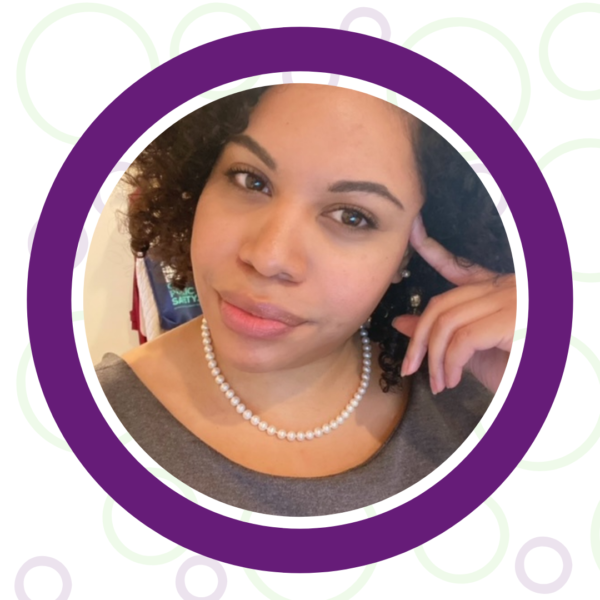
Gidget Benitez serves as Health Policy Counsel to Congresswoman Jan Schakowsky on health care policy and women’s issues. She is responsible for all legislative matters on Medicare, Medicaid, racial disparities and equity in health care, and more. Gidget previously served as a Legislative Assistant to Congresswoman Val Demings on a wide portfolio of issues including health policy and COVID-19, transportation policy, and civilian technology. Prior to this, Gidget was the 2018 - 2019 Congressional Hispanic Caucus Institute (CHCI) PepsiCo Law Graduate Fellow, where she clerked for the Honorable Hiram E. Puig-Lugo. She also served as Law Fellow to U.S. Senator Tammy Duckworth, where she drafted language for the Police Training and Independent Review Act of 2019, the language of which has been included in the “George Floyd Justice in Policing Act,” a House appropriations bill, and the Congressional Black Caucus’ “Jobs and Justice Act.” Gidget has a deep interest in the intersection of health, technology, and equity. She is a licensed attorney in the state of Maryland and a Marvel Universe fan.
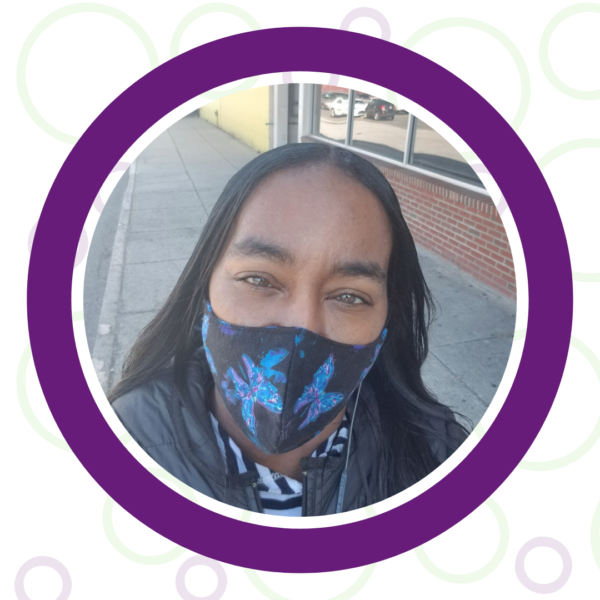
I have lived in Washington DC for the past 9 years. I was born in Maryland but moved to DC and attended University of the District of Columbia. I also attended online Colleges (University of Phoenix and Capella University) to be able to get my counseling license. I was also a foster parent for several years and I have started two businesses of my own. My Nonprofit "Better Off Independent (BOI Inc.)" and my private practice "Finding My Peace, P.C.".I am currently back in school for my doctorate in Developmental Psychology.
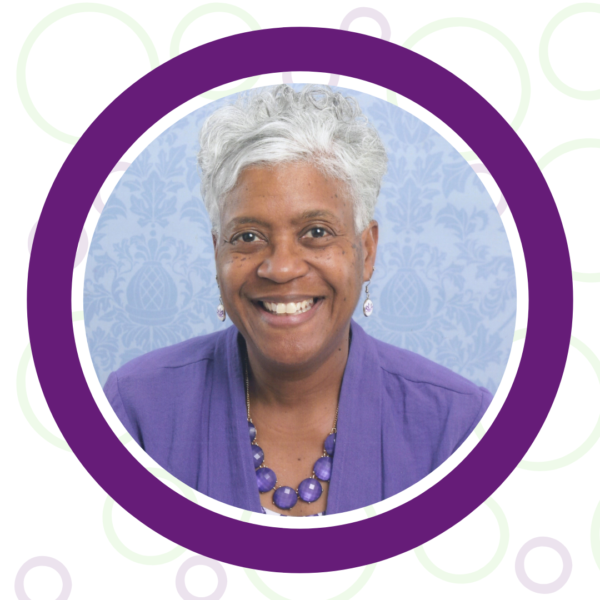
Loretta Woodward Veney is a motivational speaker and trainer who has delivered more than 300 speeches and presentations on dementia and caregiving since 2014 and she offers a wealth of information, encouragement and humor to her audiences. Throughout her life Loretta, author of Being My Mom’s Mom (2nd edition 2019) , Colors Flowing from My Mind (2019) and Refreshment for the Caregiver’s Spirit (2nd edition 2020), has chronicled family events through journals, photos, and videos, seeking to capture every moment. Her documentation came in very handy in 2006 after her beloved mother Doris became the first female in the family to suffer from dementia. Loretta began learning everything about the disease becoming a fierce advocate for her Mom in the process. Loretta and her Mom have been featured in articles in the Wall Street Journal, Psychology Today, The Washington Post, The NY Times, AARP Caregiver Stories, as well as a PBS special entitled Alzheimer’s the Caregiver’s Perspective. In 2019, Loretta was selected as Trailblazer of the Year by Johns Hopkins Medicine.
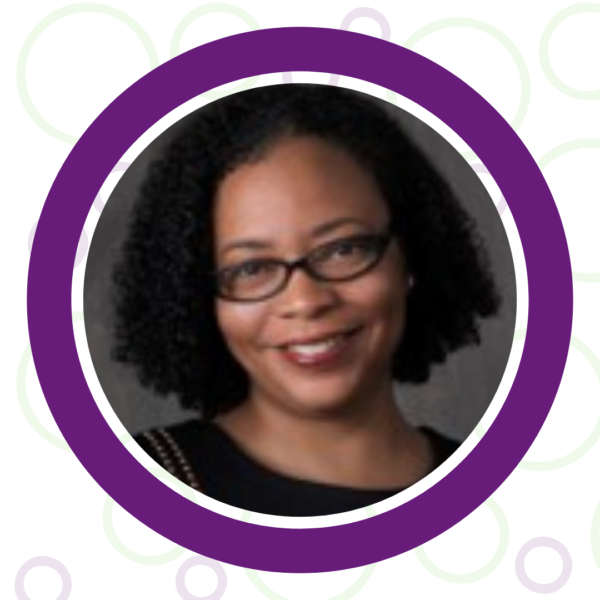
Amber Rutland Jangha is currently the Administrator of Dynamic Dental Care, a dental practice with locations in Silver Spring and Columbia, Maryland. Prior to this role, she held several positions in international development, including Managing Director of Programs at OIC International, Financial Analyst at the Export-Import Bank of the United States, and Analyst at Modern Africa Fund Managers. A graduate of Brown University, Amber also completed the dual degree programs at the Johns Hopkins School of International Studies (SAIS) and The Wharton School at the University of Pennsylvania, earning an MA in African Studies and International Economics from SAIS and an MBA from Wharton. Amber is married and the mother of three children. When she is not working, she enjoys spending time with her friends, travelling to the beach, and trying her hand at gardening.
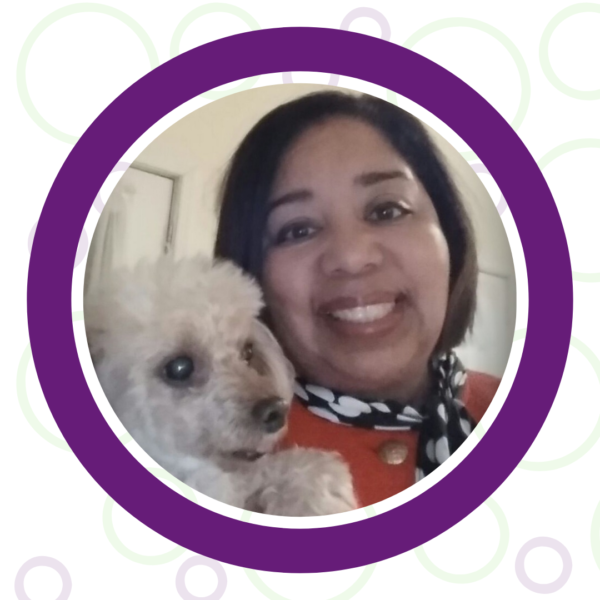
Veta T. Richardson has been president & CEO of the Association of Corporate Counsel (ACC) since 2011. She reports to a board of directors of twenty-four lawyers and leads a staff of about 80 employees who are based in the United States, England, Belgium, Hong Kong, and Australia. Lawyers join ACC to learn and network with one another so they can do a better job at being the lawyers for global corporations that must comply with lots of complicated laws and regulations. Prior to being named ACC’s CEO, Veta was a nationally recognized leader regarding diversity and inclusion in the legal sector, and she served as an advisor to three U.S. Presidential Administrations (Clinton, Bush, Obama) while she was executive director of the Minority Corporate Counsel Association. Before becoming a chief executive in the nonprofit sector, Veta was in-house corporate counsel to a Fortune-500 energy company where she went to work right out of law school. In addition to her full-time job as CEO of ACC, she also teaches a course at Georgetown Law School. She received both her Bachelor of Science in Business Management and her Juris Doctorate from the University of Maryland where she also pledged Alpha Kappa Alpha Sorority. When the pandemic is behind us, she looks forward to being able to travel again and see more of the world. She has already visited 50 countries, with more to go.
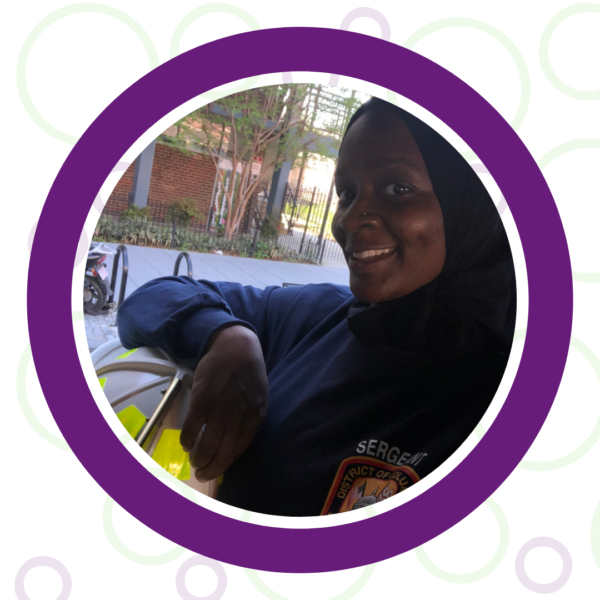
Benita LaNae Bowman- Born and raised in Washington DC, A Muslim woman (that converted to the Islamic faith in 2010), graduated from Howard Dilworth Woodson SHS in 1998 and continued her education at Keystone Job Corp graduating in 1999 after obtaining her CNA license. Benita's interest in helping/caring for others, and saving lives came from her seeing so many of her childhood friends and family dying, some from senseless gun violence and her not being able to assist them. Benita's ambition and willingness to be a part of the helping solution persuaded her studies at East Coast EMS. She graduated from East Coast EMS in 2000 with her certification as an Emergency Medical Technician. In July of 2001 Ms. Bowman joined the Washington District of Columbia Fire and EMS Family as an EMT Basic.
In March of 2006, Ms. Bowman made a lateral crossover from the position of EMT Basic to the uniform fire division of the department as a Firefighter/EMT private. During this time Benita trained, gained skills, knowledge and education to amplify her abilities to make a difference. Simultaneously, not only did Ms. Bowman's work life become more challenging but so did her home life. Benita is a mother of (3) children, a 9 year old son on the autism spectrum and her most recent birth being a set of twins (1boy,1girl)who are now 2 1/2 years old.
In September of 2018 just one month after the birth of her twins, Ms. Benita L. Bowman was appointed to the rank of Sergeant. Ms. Bowman was a bit apprehensive about taking the test. She did not know what to expect after she started her walk with the Islamic faith and the donning of her hijab (head garment). Surprisingly, her journey within the DC Fire and EMS Department has been nothing short of educational, encouraging, exciting and outstanding . She looks forward to finishing her career out. Ms. Bowman was the first covered Muslim Firefighter, and as of now the first covered Muslim woman appointed to the rank of Sergeant in DC Fire and EMS Department history and proud of it. You will find that Benita works very hard at being an awesome mother, advocate and outstanding Sergeant/Firefighter/Emt . To date Ms. Bowman is a 20 year veteran of DC Fire and EMS.
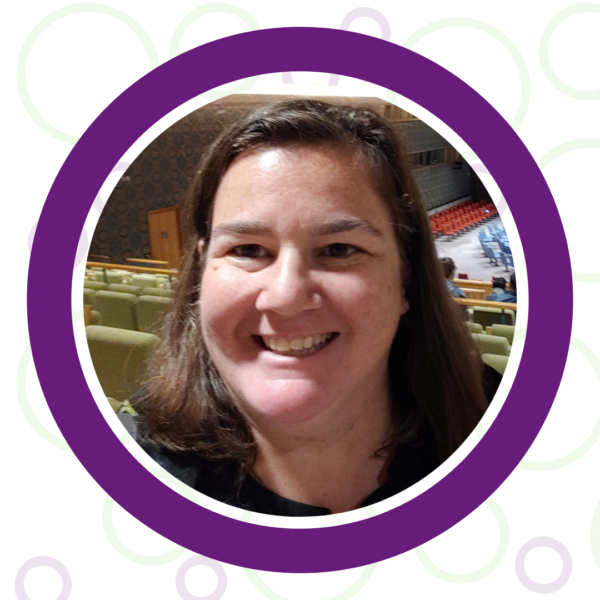
Maggie Conley is the Director of the Justice Team for the Sisters of Mercy of the Americas (an order of Catholic religious women) and in that role engages in advocacy and action around immigration, earth, racism, nonviolence and women. She has dedicated her professional career to social justice work through the Catholic Church. She lives in Maryland with her three children (2 daughters and one son) and is very active in community roles including Church, school and athletic organizations. Originally from Northern Virginia, Maggie studied communications at Xavier University and knew that she would never be effective at her job (paid or unpaid) unless it was something she believed in and helped her to grow.
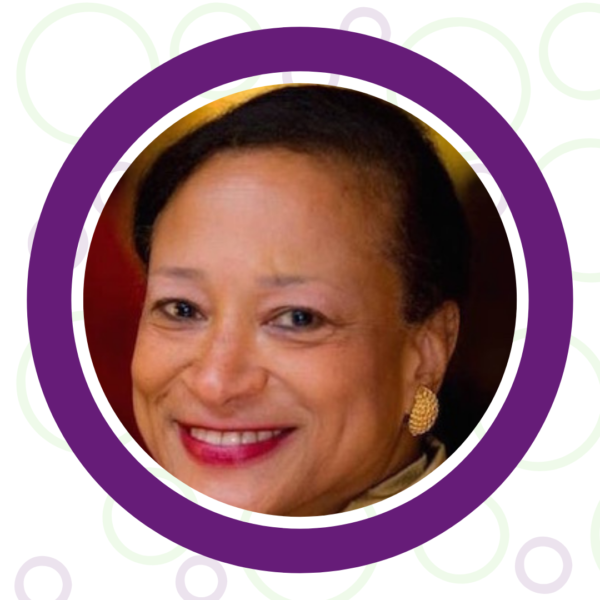
Volunteer Work –
In 1994, E. Renée Ingram established the African American Heritage Preservation Foundation, Inc., (www.aahpfdn.org) a not-for-profit organization designed to provide awareness of endangered African American historic sites and to serve as an educational resource center for individuals, community groups, educational and historical genealogical societies, and government entities. This past year, the Foundation launched a free mobile app, “African American Sites,” which has more than 1,600 sites throughout the US focused on African American Museums, National Historic Landmarks, State and Local Historic Places, Heritage Trails, Military Sites, and Endangered Historic Places that are in need of preservation and restoration.
She currently serves on the Board of Trustees for Preservation Virginia and has served on the Board of the National Trust for Historic Preservation, Afro American Historical and Genealogical Society and the DC Preservation League. She is also a Life Member of the Association of Black Women Historians and is a member of Cultural Tourism DC. Renée has written several publications regarding African American history. She has written biographical sketches on accomplished African Americans for the African American National Biography edited by Dr. Henry Louis Gates, Jr. and Evelyn Brooks Higginbotham.
Corporate Work –
Renée has served as a senior executive with several national non-profit organizations including Vice President and Treasurer of the Corporation for Public Broadcasting and Chief Financial Officer of America’s Promise the Alliance for Youth. In 2010, she started Diversified Enterprises Group, LLC in Washington, DC., which provides business management, financial management and energy efficient services to commercial and government entities.
Renée has Bachelor of Science Degrees in Business Management and Human Resources Management from Northeastern University and an MBA in Finance from the University of Denver.
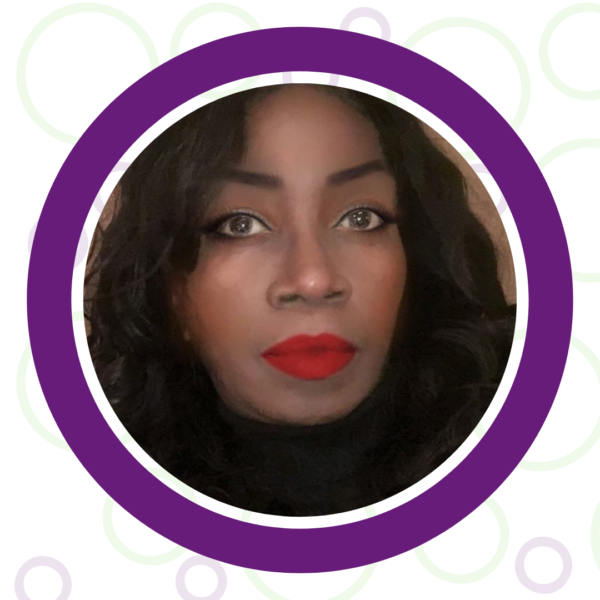
Charon Ellis has dedicated her career to improving fragile populations' lives, which has ranged from the mentally and physically challenged adults to disenfranchise low-income and disadvantaged families living in impoverished communities and most recently to children and families involved or at the border of involvement with the child welfare system. Ms. Ellis experience includes adoption and placement, foster care monitoring, and child removal from the State of Ohio. Ms. Ellis has worked on programs at the federal and state level. She possesses a strong background, training, and education in urban and community planning, which endowed her with the skills to provide administration and management oversight to organizations providing cradle to the grave services in the Washington Metro area. Some notable accomplishments have been transforming several underperforming community-based organizations to a level of prominence within the social service arena by developing and instituting systems, programs, and financial controls, leading to financial and management integrity and accountability. She is a skilled trainer and has conducted workshops on small business development, entrepreneurship, marketing, and business plan development. Ms. Ellis raised four daughters and one son and is the proud grandmother of six grandsons and two granddaughters. Ms. Ellis has earned a Master's of Social Work, Catholic University of America, a Master's in Urban Policy and Planning, University of the District of Columbia, and an undergraduate degree in Social Work and Psychology, Wilmington College, Wilmington, Ohio
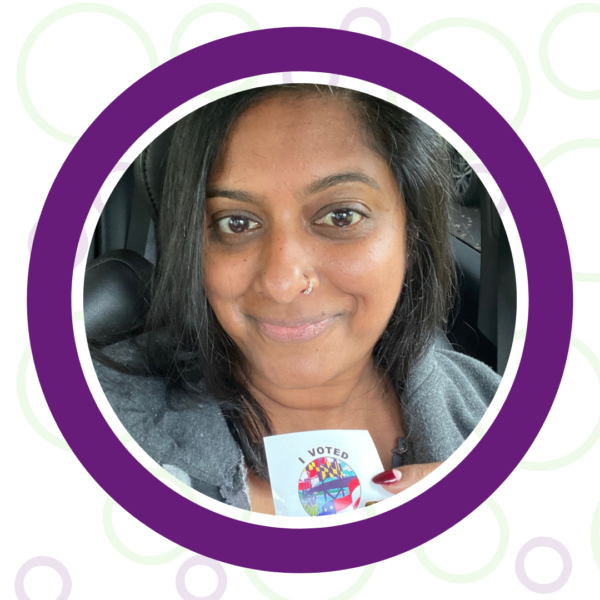
Hi! My name is Bindu. I'm 44 years old and have done a lot of different things in my life. I was born and raised in the DC area. I went to The George Washington University for undergrad and UMBC for grad school. I've worked as a library page, waitress, bartender, paramedic, ER tech, office administrative assistant, software developer, IT project and program manager, and I'm about to start as Chief of Staff/Business Line COO for the Tech Modernization division at Freddie Mac. About 17 years ago, I took a break from working full time to stay home with my kids. For 10 years, I stayed in touch with my work contact, kept up with technology and innovation, and was able to return to the full time work force. I've always looked at life as full of possibilities and life has never disappointed me. I believe in approaching every situation, conversation, everything with curiosity. Everything in your world is an opportunity to learn.
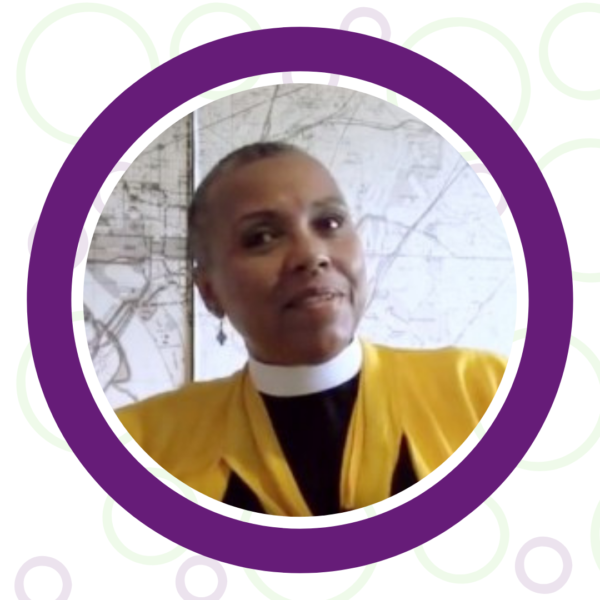
A native Washingtonian and educated in DC Public Schools, she spent 20 years with the Metropolitan Police Department, retiring with the rank of captain. After consulting and teaching at the university level, she was ordained priest in the Episcopal Church and currently serves as interim rector (pastor) of the historic St. Luke's Episcopal Church in Washington, DC.
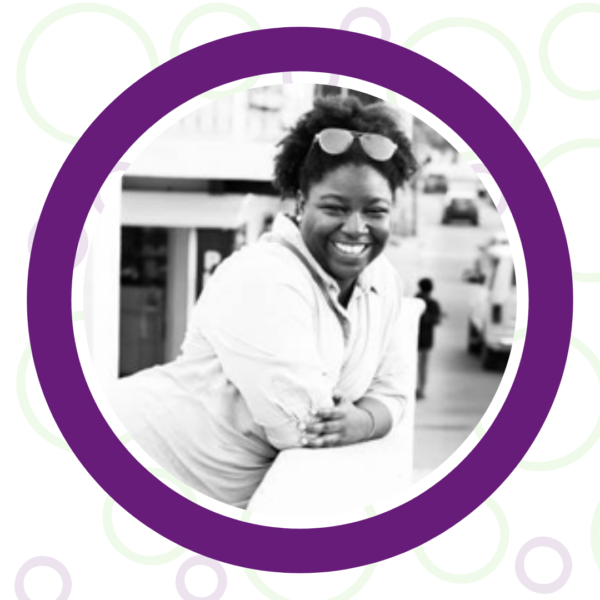
Jennifer Amuzie is a resident of Ward 6 in Washington, DC. She has roots in Igboland of Nigeria, the low country of south Georgia and is growing roots in her "community in struggle" by organizing with Sanctuary DMV, the ICE out of DC Coalition and the Defund MPD Coalition. She earned her Bachelor's and Master's degrees at Georgia Southern University (formerly Armstrong) in Savannah, Georgia, and contributed an essay to the bestseller and Illumination Book Award winner, Preaching Black Lives (Matter).
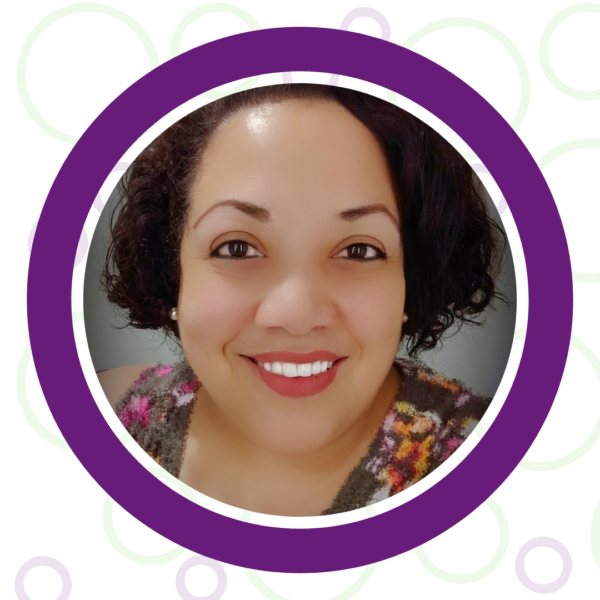
Nuria Diallo Padro, MBA, M.Ed. is a global consultant specializing in strategic management and community engagement. As the founder and Chief Executive Officer of Continued Success Global, Nuria empowers organizations, groups, and individuals to embrace diversity, equity, and inclusion (DE&I) as they navigate change, strategic planning, learning and development, and strategic communications. Nuria has over 20 years of experience in community and global projects, and is taking this unprecedented time in our history to build and sustain communities through programming and virtual collaborations. Nuria has been recognized for her leadership, service and commitment to equity and advocacy by national organizations and world renowned universities. Nuria currently serves on the Board of Directors for the Penn State Alumni Association, the Steering Committee for Girls Global Academy in Washington, DC, and as President of the National Society for Leadership and Success at Our Lady of the Lake University in San Antonio, Texas.
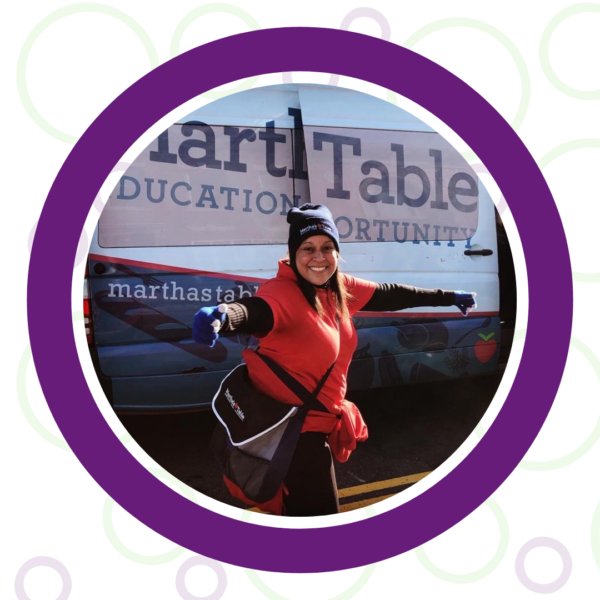
Kim R. Ford serves as President and CEO of Martha’s Table. Ford previously served as Deputy Assistant Secretary and Acting Assistant Secretary in the U.S. Department of Education’s Office of Career, Technical, and Adult Education. Ford provided leadership, direction, and management on over $2 billion dollars in career and technical education, adult education, correctional and re-entry education and community college initiatives, which collectively serve over 25 million students annually. Previously, Ford served as the Dean of Workforce Development and Lifelong Learning at the University of the District of Columbia Community College (UDC-CC). She promoted an environment of student success focused on building community, instituting feedback loops and helping students transition into higher levels of education and careers. Prior to joining UDC-CC, Ford served in the Obama Administration’s Recovery Implementation Office, which was responsible for implementing the American Recovery and Reinvestment Act of 2009. She directed working relationships between the Office of the Vice President and eight federal agencies on over $350 billion dollars of Recovery Act programs. Ford holds a Bachelor’s Degree in International Business from Vanderbilt University and a Master’s Degree in Public Administration from the University of Pennsylvania.
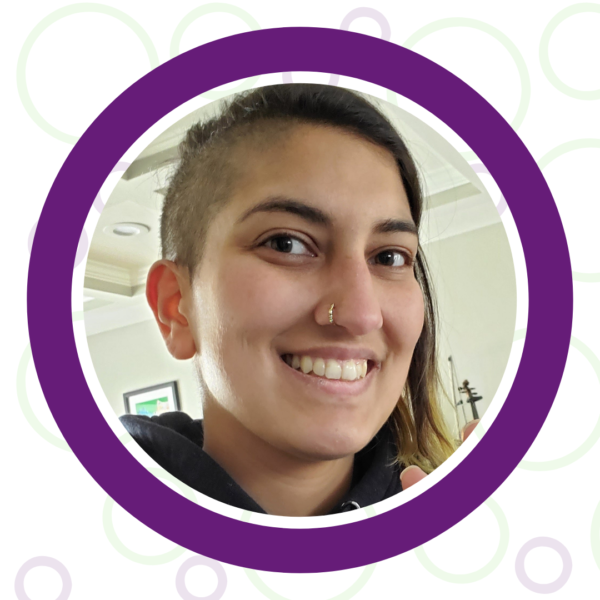
Hey im Anjali! I am an artist and art educator born and raised in Maryland. I love animals, nature, and bright colors- you often see all of these in my artwork. I am dedicated to bringing the power of art and art making to everyone I meet, especially those who may not know about it yet! As a result, I recently started a non-profit organization called Creative Outlets Arts Center aimed at teaching people how to use art for mental health and providing students in need with the resources to do so. Check us out on Instagram @CreativeOutletsArtsCenter and tag me in the art you are making, i would LOVE to see your creativity!
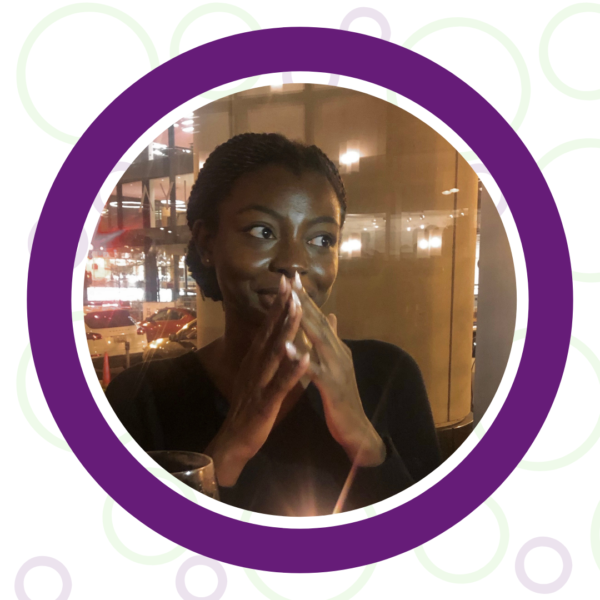
Fanta Kamara is a Program Specialist in the Office of Minority Health Research Coordination of the National Institute of Diabetes and Digestive and Kidney Diseases at the National Institutes of Health. The Office was established in 2000 to address the burden of diseases and health disorders that disproportionately affect minority populations. As a Program Specialist, Fanta assists several OMHRC initiatives, including the Short-Term Research Experience for Underrepresented Students (STEP-UP) and the NIDDK Diversity Supplements Program, and recently completed a programmatic review and historical analysis of OMHRC programs since 1970. Prior to joining the NIDDK, Fanta was a Management Analyst in the Property Management Branch/Division of Logistic Services of the NIH's Office of the Director. In that role, Fanta was instrumental in developing the NIH Property Community Collaboration SharePoint Site and revamping the Branch's Site Assistance Visit program. Fanta is a 2020 recipient of the NIH Director's Award for her work on the NIH Optimize: Property Initiative, on which she served as the lead to the Communications subcommittee and as a member of the Data Analytics subcommittee. Fanta attended the National Cathedral School, an all-girls' school in D.C.. Following high school, she earned a B.S. degree in Health Science from Northeastern University in 2017 and earned a M.S. degree in Biotechnology from Johns Hopkins in 2019